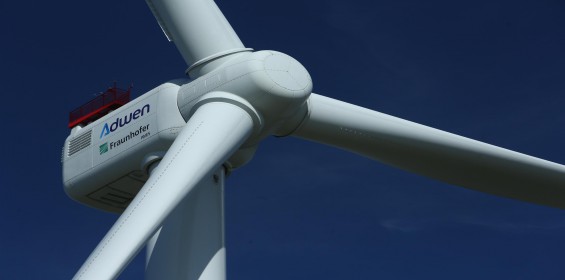Engineering company testing the future for wind technology
Published: 13 March, 2020
TECOSIM, a leading engineering company, has announced it is on track with its three-year project to discover new, scalable materials to use in the construction of wind turbine rotor blades. The CAE specialist has teamed up with Leibniz University in Hannover to carry out its research.
As wind turbine technology improves, the current materials have been stretched to their maximum capacity for longer service life and their improved lightweight properties. At a time when decarbonisation is the goal across every industry, a way to improve the life, durability and efficiency of wind turbines will come as welcome news.
The project’s main focus is looking at nano-modified materials and hybrid laminates. These have the potential for greater service life and stress resistance than current glass fibre reinforced composites.
Issues of scalability will also be assessed in the research. It is important that the materials recommended at the end of the study can be reproduced in a cost-effective manner.
TECOSIM is testing different composites by building full-scale rotor blades using state of the art computer software. The rotor blade is then subjected to the various stressors and environmental factors it would experience in the real world. Adjustments to design and material makeup can then be made easily and the tests repeated.
Using CAE (Computer Aided Engineering) allows TECOSIM to test the rotor blades to failure without the need to construct further models every time. Crucial data can be gathered from each test, painting a clear picture which materials will function best in the real world. This process speeds up testing and saves considerable costs for materials and construction of test models.
TECOSIM is testing different hybrid materials made from glass-fibres, carbon-fibres and metal foil. Constructing rotor blades from these materials should make the overall structure lighter as well as increasing its performance.
The UK head office of TECOSIM, based in Basildon, Essex will be demonstrating more of this research at this year’s SNS2020 conference hosted by EEEGR. As the conference focuses on the transition to a zero-carbon economy, research like TECOSIM’s could prove invaluable to the entire energy community.
Recognition of the value that TECOSIM UK could add to the energy industry has also come from ORE Catapult. The UK’s leading technology innovation and research centre for offshore renewable energy has invited TECOSIM to join its Powered By programme. The ORE Catapult has identified TECOSIM as having exciting innovations and strong potential to contribute to the offshore wind industry.
This endorsement is a telling sign of the impact and benefit that applying TECOSIM’s CAE expertise to the renewable energy industry will have.
For more information on this project or TECOSIM in general, please contact info@uk.tecosim.com or call 01268 889550.






